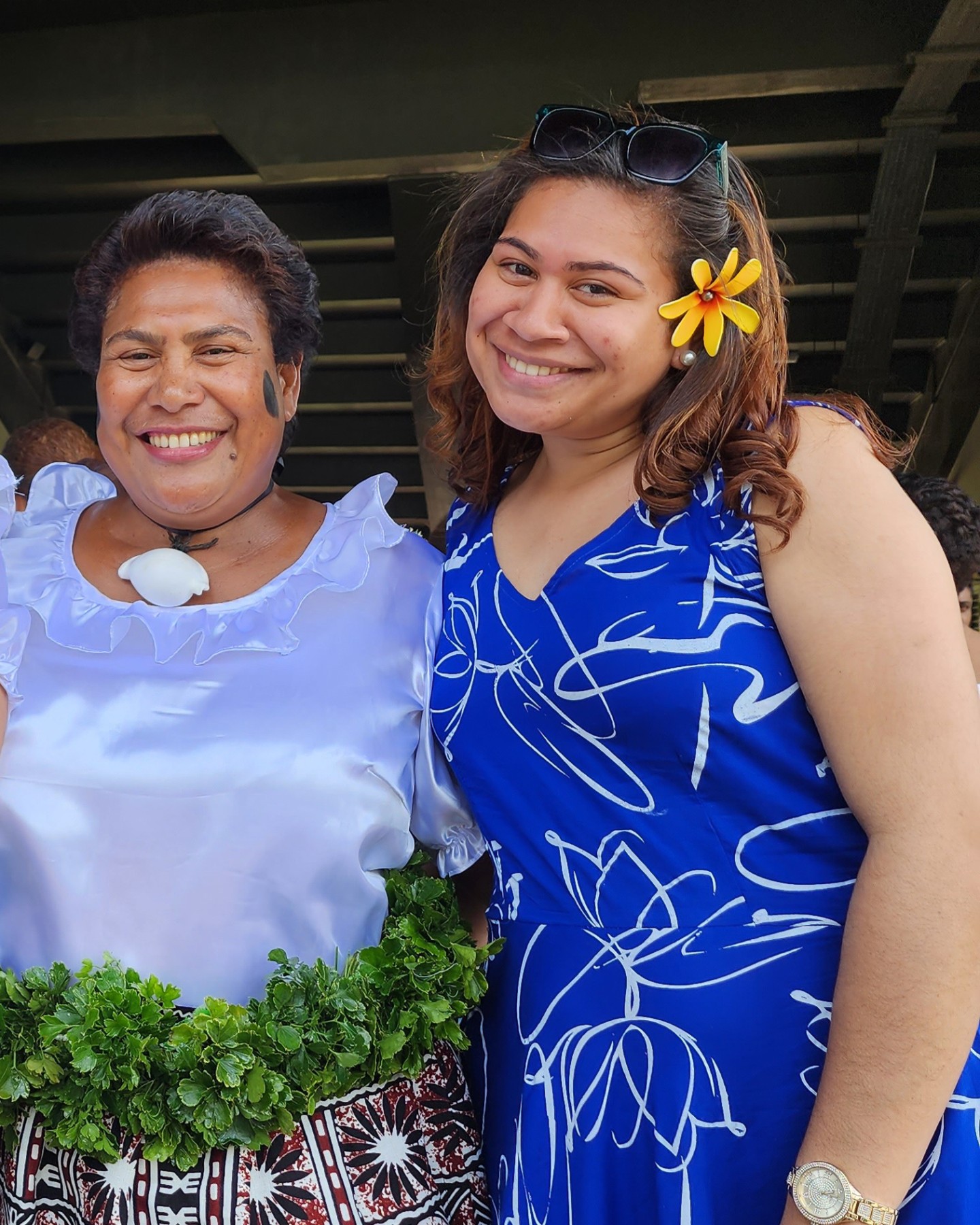My maternal grandmother is from Aitutaki in the Cook Islands — her heritage weaves through our family like a quiet thread of strength and beauty. These places are more than locations on a map — they are the heartbeat of my identity, woven into the way I see the world, speak, and live.
I come from a loving, close-knit family that has always held tightly to its values: respect, strength, faith, and pride in our culture. Growing up, I was surrounded by stories, customs, and the quiet wisdom of my elders. My time at Adi Cakobau School helped shape these values further. It taught me discipline, independence, sisterhood and most importantly, pride in being a Fijian woman. Those years gave me a deeper sense of who I am and the responsibility that comes with it.
Language has always been a core part of that journey. I speak Fijian and understand it well, but living in Aotearoa has brought challenges. English dominates many of my daily interactions — at school, at work, even with friends. Sometimes it feels easier to stay in that space, just to fit in. But with that ease comes a quiet loss — of expression, of nuance, of cultural connection. That’s why, now more than ever, I try to hold space for my language — to speak it with my family, to teach it to younger cousins, and to keep it alive in everyday moments.
One memory that always stays with me is learning vucu (traditional chants) and meke during my time at Adi Cakobau. It wasn’t just about the performance — it was about knowing where those songs came from, the meaning behind the words, and the responsibility we carry when we speak them. That’s when I truly began to understand that language isn’t separate from who we are — it is who we are.
Becoming a nurse has been a long-held dream. I’ve always known I wanted to serve my community, but over time, I realised my passion lies in women’s health — particularly in walking alongside women through some of their most vulnerable and powerful moments. I hope to become a midwife one day, to be a trusted hand for our Pacific women — to provide not only medical care, but cultural understanding, emotional support, and dignity during childbirth and beyond.
My Fijian background gives me a unique lens in this work. I understand the importance of respecting tradition, of listening before speaking, of holding space for both modern medicine and cultural belief. I hope to take this perspective back home one day — to create spaces where language, culture, and healthcare can exist side by side.
In my family, and in my future as a midwife, I hope to keep nurturing that idea: that the home is where our language lives, and from there, it can grow into the world.

